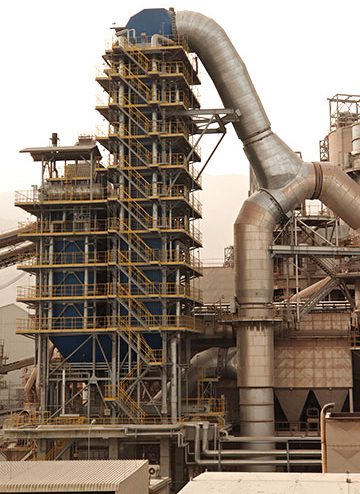HSE Policy
Environmental protection serves as the foundation for all business operations at RAKCC. For us, environmental protection encompasses not only the operations at our plant but also the entire community. Our company’s environmental policy, which ensures that operations are carried out effectively with little risk to the environment, serves as a tangible example of our commitment to the environment. We have also paid close attention to minimizing our facility’s environmental impact and facilitating compliance with environmental regulations.
Environmental Management & Compliance
Wherever we operate, we are committed to following high standards for environmental management and strict adherence to all applicable environmental laws. In particular, at and around our operation sites, this commitment is consistent with our guiding principles of continuous improvement and environmental protection for the benefit of all. We make an effort to reduce the amount of energy, natural resources, and damaging effects our operations have on the environment. To align our environmental performance, we constantly monitor both national and international environmental standards. At RAKCC, we abide by all rules and laws issued by the Ministry of Climate Change, including Decree 137 and rules from the Ras Al Khaimah Local Authority (EPDA). To make sure that our environmental performance complies with regional standards, we also cooperate with Ras Al Khaimah’s Environmental Protection Authority and Ministry of Environment and Water. Additionally, our plant was built to adhere to the strictest environmental protection criteria set forth by Europe.

Our Energy Consumption
The cost of producing cement is heavily reliant on energy, which has a major financial influence on our industry. We recognized the waste heat recovery system as a chance to save energy due to the high input prices and the increasing pressure from stakeholders to implement eco-friendly production techniques. By recycling the heat generated during our production process, we were able to lower our energy usage in 2019 after installing a new waste heat recovery system. Our Heat Waste Recovery System generated 21% of the energy we produced in 2020. These modifications show the management’s commitment to enhancing our environmental performance. 21% of the electricity we generated in 2020 came from renewable sources. Our reliance on non-renewable sources has decreased as a result of our efforts to incorporate renewable energy into our operations, and we intend to keep doing so in the future.
